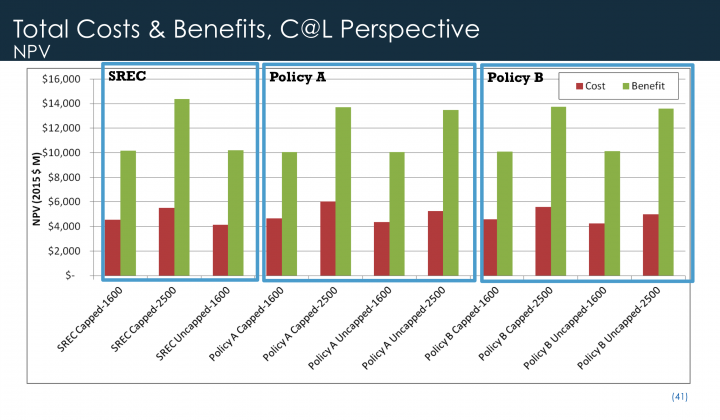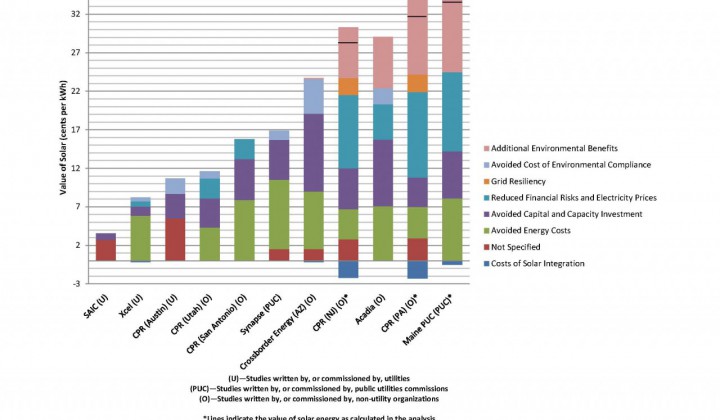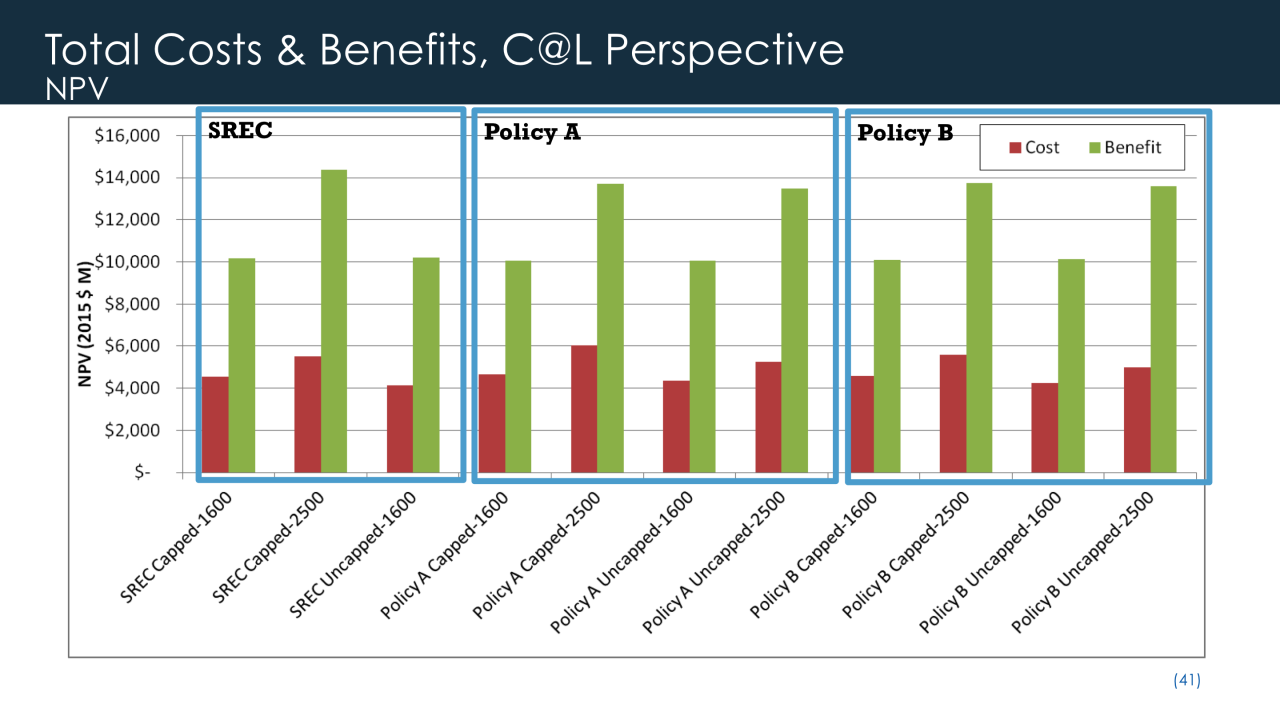Utilities Ignore Benefits of Solar

CONTRARY TO claims from two Massachusetts utilities and a state industry association, having too much solar may not be a problem at all (“Nonsolar users bear burden of net metering”).
Solar panels have gotten cheaper, in part, because states such as Massachusetts have led the way with policies that have helped bring economies of scale to solar. Indeed, Massachusetts already generates enough solar energy to power 128,000 homes, making it the sixth-most solar-using state, and more and more people are selling solar electricity back to the grid.
Unfortunately, utilities didn’t anticipate such rapid growth. Now they want to tap the brake by limiting support that the state provides for solar.
That would be a mistake.
While the authors of the op-ed offer a utility-supplied figure on supposed solar costs, an important outcome of the task force on which they participated was support for carrying out a“comprehensive and transparent” study on the costs and benefits of solar. Such studies in other parts of the country have shown that solar systems often provide more benefits than costs.
Disrupting Massachusetts’ growing solar energy businesses based on incomplete information makes no sense for citizens, the Commonwealth, or our future.

THE JUNE 29 opinion piece “Nonsolar users bear burden of net metering” ignores the benefits of solar to all ratepayers, and presents a one-sided view of costs based on incomplete calculations that were compiled by the utilities. The piece also ignores the overall value of solar in creating high-quality local jobs in the Commonwealth and in preventing harmful emissions. The Net Metering and Solar Task Force report shows that the benefits of solar far outweigh the costs, providing a net benefit of $9b to the Commonwealth.
The Baker administration supports reaching at least 1,600 megawatts of solar while minimizing costs to ratepayers. However, according to the task force, the pathway described by the op-ed’s authors — to not raise the net-metering caps — is the most expensive scenario for meeting the 1,600-megawatt goal.
The solar industry shares the goal of making energy more affordable for customers now and over the long term. Immediately lifting the net-metering caps would enable Massachusetts to take advantage of federal tax credits that expire in 18 months. We support establishing a long-term solar and net-metering policy framework. Let’s work together in good faith toward a sustainable solar policy.



